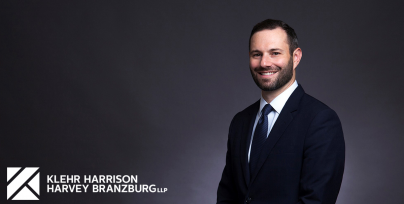How Businesses Receiving PPP Loans Can Mitigate False Claims Act Liability
April 26, 2020

James Petkun
How Businesses Receiving PPP Loans Can Mitigate False Claims Act Liability
The grave economic emergency now facing thousands of businesses across the country has forced the federal government to quickly activate its lending program – the Paycheck Protection Program (PPP) – but the rush to secure funding by companies, along with a lack of meaningful government oversight regarding the disbursement of funds, has created a significant risk of fraud in the process of applying for, obtaining, and using PPP loans. The False Claims Act will be a primary vehicle utilized by governments, prosecutors, and plaintiff’s lawyers to hold companies and individuals accountable for potential fraud related to PPP loans.
The Coronavirus Aid, Relief, and Economic Security Act (CARES Act) established the Paycheck Protection Program, pursuant to which the Small Business Association (SBA) made available to small businesses an initial $349 billion in loans to fund operational expenses during the COVID-19 pandemic – with an additional $300 billion more possibly being released in coming days. The PPP program provides up to $10 million in loans to eligible small businesses for payroll and other enumerated obligations, as well as a mechanism for loan forgiveness if the loans were used for appropriate purposes. Further, the CARES Act increased eligibility for the Economic Injury Disaster Loan (EIDL) program and made grants of up to $10,000 available to cover certain operating costs for eligible businesses. Approximately 1.7 million loans were approved in the first round of the program, with potentially hundreds of thousands more expected if and when the second round of lending commences.
Notably, the CARES Act created three oversight bodies charged with monitoring the distribution of the stimulus funds: (1) the Office of the Special Inspector General for Pandemic Recovery, within the U.S. Department of the Treasury; (2) the Pandemic Response Accountability Committee; and (3) the Congressional Oversight Commission. These bodies undoubtedly will work with the U.S. Department of Justice, as well as with other federal, state, and local law enforcement and investigative entities in the coming months and years to investigate and prosecute companies and individuals committing fraud related to PPP funds. Importantly, the False Claims Act will be one of the most heavily-used vehicles for the government – and plaintiff’s lawyers – to seek to hold PPP recipients accountable for potential fraud.
Make no mistake: False Claims Act enforcement and recoveries are big business for the U.S. Department of Justice: in the fiscal year ending in September 2019, DOJ obtained more than $3 billion in settlements and judgments from civil cases involving fraud and false claims against the government. Given the mass disbursement of government funds to companies pursuant to the PPP program, False Claims Act investigations and cases will greatly increase in coming years – and businesses accepting PPP funds must be prepared for potential scrutiny.
False Claims Act Liability for SBA-Underwritten Loans
As background: the False Claims Act (FCA), 31 U.S.C. §§ 3729 – 3733, was enacted in 1863, in the midst of the Civil War, when Congress sought to hold accountable those suppliers of goods to the Union Army who were committing fraud against the government. Over the years, the FCA has evolved into one of the government’s most useful tools to recover funds obtained through fraud.
The FCA allows both the government and individual whistleblowers – called “relators” – to bring claims against persons or entities who knowingly submit or cause to be submitted false claims to the government for payment, or made false certifications material to the disbursement of government funds (“knowingly” being defined by law as (a) having actual knowledge, (b) acting with reckless disregard, or (c) acting in deliberate ignorance). Potential exposure under the FCA includes treble (triple) damages, heavy monetary penalties, and the payment of attorneys’ fees. Because PPP loan applications, forgiveness calculations, and related payments are submitted to and paid by the SBA, small businesses that seek PPP funds are subject to FCA liability. Notably, PPP-related funding is characterized by mandatory certifications and various uncertainties that increase the risks of FCA exposure for small businesses.
Applications both for PPP and EIDL loans require applicants to make various certifications regarding their businesses – and the SBA puts applicants on notice that it is relying upon applicant self-certification to verify that the applicants are eligible entities to receive funding. Importantly, applicants provide their self-certifications under the penalty of perjury. Examples of the certifications that applicants must make include that current economic uncertainty makes the loan request necessary to support ongoing operations and that loan funds will be used to retain workers, maintain payroll, and to make mortgage interest payments, lease payments, and utility payments. Applicants must also certify that they understand that if the funds are knowingly used for unauthorized purposes, the federal government may hold the applicant legally liable for fraud or other charges.
Critically, because PPP and EIDL applicants must certify their eligibility, it is the applicants’ responsibility to ensure eligibility before making certifications. Misstatements and even good-faith errors, when completing and submitting applications and certifications may bring government scrutiny or a potential lawsuit by a “relator” whistleblower with knowledge of the misstatements or errors. Of course, even if the error was made in good faith such that FCA liability would not ultimately accrue, a company may still be on the hook to defend a potential FCA investigation and/or lawsuit in an effort to clear its name – and that defense could be costly, both in terms of dollars and reputational harm.
Importantly, the CARES Act does not attempt to define the contours of funding that may or may not be “necessary” to support a small business’s “ongoing operations.” Much uncertainty exists surrounding what the term “eligible purposes” means as it relates to PPP funding – and whether payroll, mortgage payments, lease payments, and utility payments are all that is permissible. Further, the CARES Act and the PPP contain no interpreting rules, regulations, or significant guidance. And companies seeking and obtaining PPP funds should realize that the government will later scrutinize all aspects of the loan process, including the application process, the spending of the funds, responding to government questions/updates, and/or responding to audits.
All PPP applicants should carefully review the requirements of the programs to which they apply, seek guidance from counsel or the relevant agency regarding eligibility to ensure that they are not unintentionally misrepresenting their eligibility for these loan programs, review and consider agency guidance on completing the forms, and document all efforts to obtain guidance on the proper interpretation of the eligibility standards and criteria. Building a record showing a good faith effort to comply with the law and properly make certifications and representations will assist in the defense of a future FCA investigation or lawsuit, and enable mitigation of FCA liability from the onset.
And, of course: showing that a PPP recipient consulted with counsel, and acted after obtaining advice from counsel, will provide a strong defense against the FCA’s “knowing” requirement – and, practically-speaking, prosecutors are loath to bring cases against companies acting on the advice of counsel.
Closing Thoughts
The next several years are likely to bring substantial False Claims Act lawsuits and investigations surrounding the distribution of PPP funds to businesses – and companies must prepare to mitigate FCA liability today to protect against FCA scrutiny and enforcement in the future. With so much government cash going out the door pursuant to the PPP program, it is inevitable that DOJ and the FCA relator’s/plaintiff’s bar will file lawsuits to recover PPP-related funds obtained via potential fraud in any aspect of the PPP loan process. As a result, businesses applying for and accepting PPP loans should proceed with caution and prudence, consult with counsel throughout the application process (and potentially into the process of spending the funds, dealing with future certifications and audits), and create a documented record demonstrating all efforts to comply with the law and required self-certifications through all aspects of applying for and using PPP funds.
The Coronavirus Task Force at Klehr Harrison stands ready to assist you in your business and legal needs. We will continue to provide additional information and guidance as the COVID-19 situation develops.
Author James A. Petkun is a partner in the white-collar defense and government investigations practice group at Klehr Harrison.


